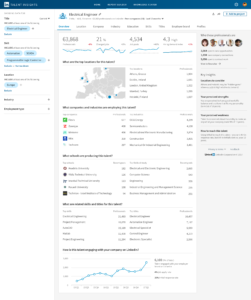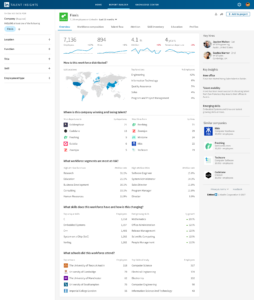What do you think of, in regards to smarts, when I say: “Sexy Blond model type”?
What about: “Strong Athletic Jock?”
What about: “Scrawny nerdy band geek?”
My guess is most people would answer: Dumb, Dumb, Smart – or something to that context.
In HR we call this profiling and make no mistake, profiling is done by almost all of our hiring managers. The problem is everything we might have thought is probably wrong in regards to our expectations of looks and brains. So, why are ugly people smarter?
They’re Not!
Slate published an article that contradicts all of our ugly people are more smart myths and actually shows evidence to the contrary. From the article:
Now there were two findings: First, scientists knew that it was possible to gauge someone’s intelligence just by sizing him up; second, they knew that people tend to assume that beauty and brains go together. So they asked the next question: Could it be that good-looking people really are more intelligent?
Here the data were less clear, but several reviews of the literature have concluded that there is indeed a small, positive relationship between beauty and brains. Most recently, the evolutionary psychologist Satoshi Kanazawa pulled huge datasets from two sources—the National Child Development Study in the United Kingdom (including 17,000 people born in 1958), and the National Longitudinal Study of Adolescent Health in the United States (including 21,000 people born around 1980)—both of which included ratings of physical attractiveness and scores on standard intelligence tests.
When Kanazawa analyzed the numbers, he found the two were related: In the U.K., for example, attractive children have an additional 12.4 points of IQ, on average. The relationship held even when he controlled for family background, race, and body size.
That’s right HR Pros, pretty people are smarter. I can hear hiring managers and creepy executives that only want “cute” secretaries laughing all over the world!
The premise is solid though! If you go back in our history and culture you see how this type of things evolves:
1. Very smart guy gets a great job or starts great company and makes a ton of money
2. Because of success, “smart guy” now has many choices of very pretty females to pursue as a bride.
3. “Smart guy” and “Pretty bride” start a family which results in Pretty-Smart Children. Did you pay attention to basic genetics in biology class?
4. Pretty-Smart Children grow up with all the opportunities that come to smart beautiful families.
5. The cycle repeats.
Now, first, this is a historical thing thus my example of using a male as our “Smart guy” and not “Smart girl”. I’m sure in today’s world this premise has evolved yet again. But we are talking about how we got to this point, not where are we now. Additionally, we are looking at how your organization can hire better.
So, how do you want to hire better employees? That’s easy! Just hire more pretty people!


